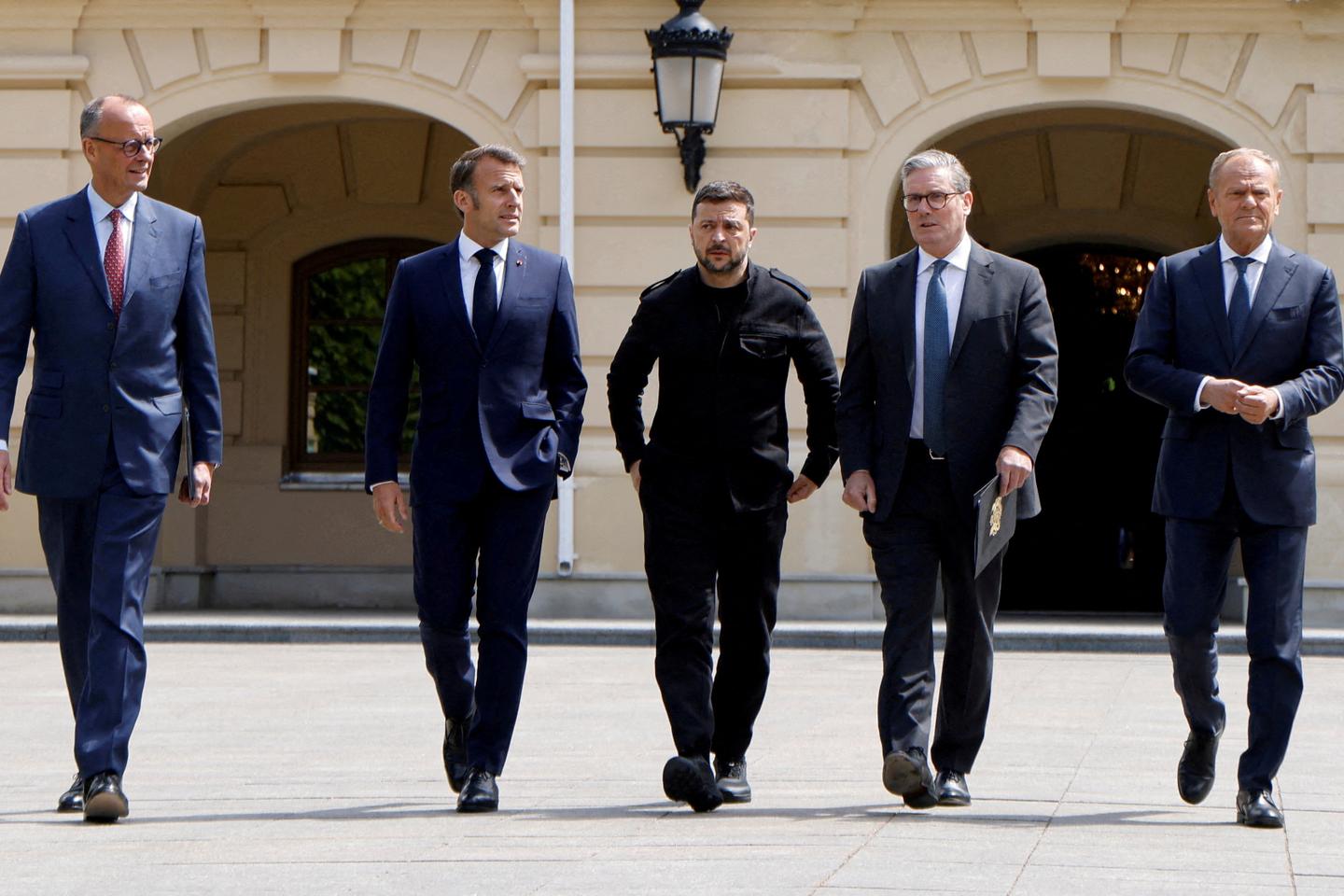


Their first initiative fell flat, but it was likely only the start. French President Emmanuel Macron, German Chancellor Friedrich Merz, British Prime Minister Keir Starmer and Polish Prime Minister Donald Tusk attempted, during their joint visit to Kyiv on Saturday, May 10, to deliver a kind of ultimatum to Vladimir Putin. They threatened a new round of sweeping sanctions unless he finally accepted the cease-fire that Donald Trump had been proposing for over two months. The Russian president ignored them, and, unsurprisingly, snubbed the meeting set up in Turkey days later as a challenge by his Ukrainian counterpart, Volodymyr Zelensky.
While these moves may have been short-lived, they sealed a closer association among four European leaders determined to support Ukraine against Russia. In the eyes of this group of leaders, everything so far demonstrates that Putin has no intention of ending his war, more than three years after the full-scale invasion of Ukraine began.
The real challenge now is convincing Trump. Fighting continues on the front, while Russian missiles and drones relentlessly carry out deep strikes targeting civilians and infrastructure. A negotiated peace that is both "just" and "lasting" still seemed a distant prospect.
Nevertheless, the visit marked a turning point in Europe's effort to influence the outcome of a conflict that directly impacts their collective security. On several occasions in recent weeks, the four leaders convened on the phone to speak with the American president. Conversely, none has reached out to the Russian president, although Macron has not ruled out that possibility if his counterpart ever agrees to it.
Moving beyond the Franco-German duo
This format represents the spearhead of the "coalition of the willing" that Europeans have set up – initiated by the French and British leaders – to initially deploy Western troops to the invaded country in the event of a cease-fire. The grouping brings together Western and Eastern Europe by including Poland, a rising military power on the front line against Russia and its Belarusian ally. Poland is becoming a continental force, still bearing the scars of Paris and Berlin's blindness toward Moscow prior to the February 2022 invasion.
You have 60.77% of this article left to read. The rest is for subscribers only.
